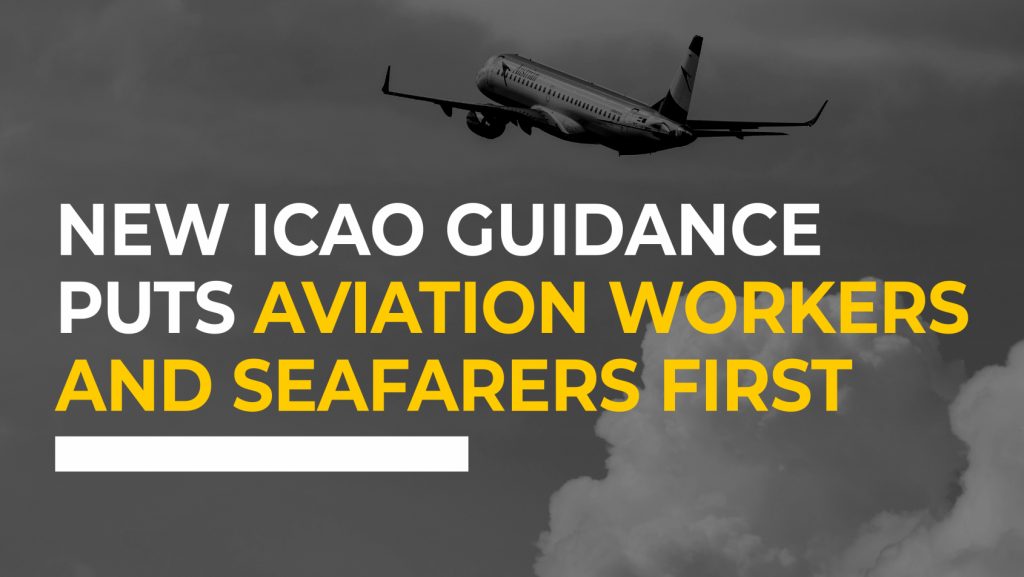ITF Civil Aviation ensures new ICAO guidance puts aviation workers and seafarers first
October 2, 2020

The ITF have advocated for new guidance to governments from the International Civil Aviation Organisation (ICAO) prioritising aviation workers’ and passengers’ safety while pushing airlines to do more on the worsening crew change crisis affecting seafarers.
Gabriel Mocho Rodriguez, Section Secretary of ITF Civil Aviation outlined how the new guidance would improve the safety of aviation workers and contribute to a safe restart to global passenger operations.
“As the aviation industry has almost come to a complete halt due to the Covid-19 pandemic outbreak, it is essential to find a way in which we can resume a manageable level of passenger traffic, taking into consideration public health requirements necessary to control the pandemic.”
“This is the reason why the Collaborative Arrangement for the Prevention and Management of Public Health Events in Civil Aviation (CAPSCA) programme has developed a strategy known as the ‘Public Health Corridor Concept.’ We welcome the fact that the new ICAO guidance has such a strong emphasis on the health of cabin crew and passengers, while also supporting elements required for the safe and efficient travel of seafarers returning to and from home.”
“The strategy describes how to manage essential flights that would allow aircraft and crew to work with minimal additional burdens while maintaining flight safety and preventing the transmission of Covid-19.”
“Key elements include the implementation of operational and health measures, as well as disinfection and segregation procedures. This is so we can ensure that people carrying Covid-19 will not be allowed on flights.”
“We have been actively attending all meetings and activities to give a voice to the needs of aviation workers and to support seafarers and other key workers in these considerations,” said Mocho Rodriguez.
The new guidance covers four kinds of flights:
(1) Repatriation flights
(2) Seafarer changeover flights
(3) Flights requiring cabin crew on-board; and
(4) Flights carrying passengers on-board.
Mocho Rodriguez said the ITF supported to have seafarers included as one of the ‘four pillars,’ considering that there are now more than 400,000 seafarers estimated to be trapped working aboard vessels. He said lack of flights remains a serious problem, and the new guidance provides an outline of how repatriation and changeover flights can be done safely and efficiently.
“This guidance will help governments to facilitate seafarer changeovers, helping to alleviate the suffering of thousands of seafarers trapped working aboard vessels,” he said. “It will also support those seafarers waiting to join ships at home to get onto those ships and start earning wages again.”
Mocho Rodriguez said the ICAO guidance also emphasises the need to ensure adequate training and proficiency checking of frontline aviation workers for the commencement of operations following extended periods of reduced flying, pointing out that failure to do so could have grave consequences.
Going forward, he said the ITF would be heavily involved in ensuring any new protocols guard cabin crew and passenger safety while looking out for seafarers’ crew change needs.
Tags: CAPSCA, changeover flights, COVID-19, crew change, ICAO, Public Health Corridors
